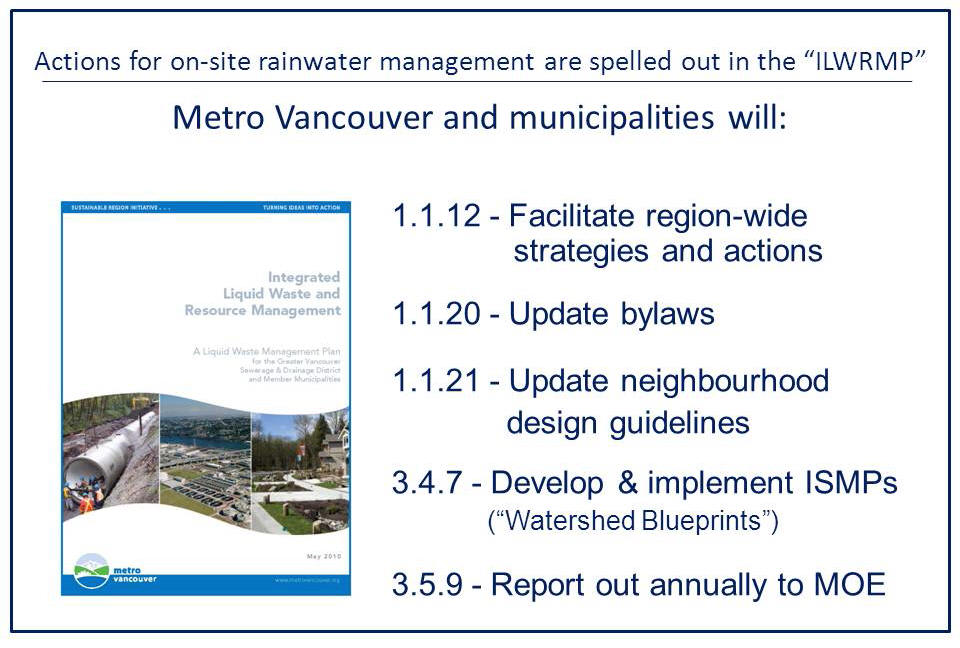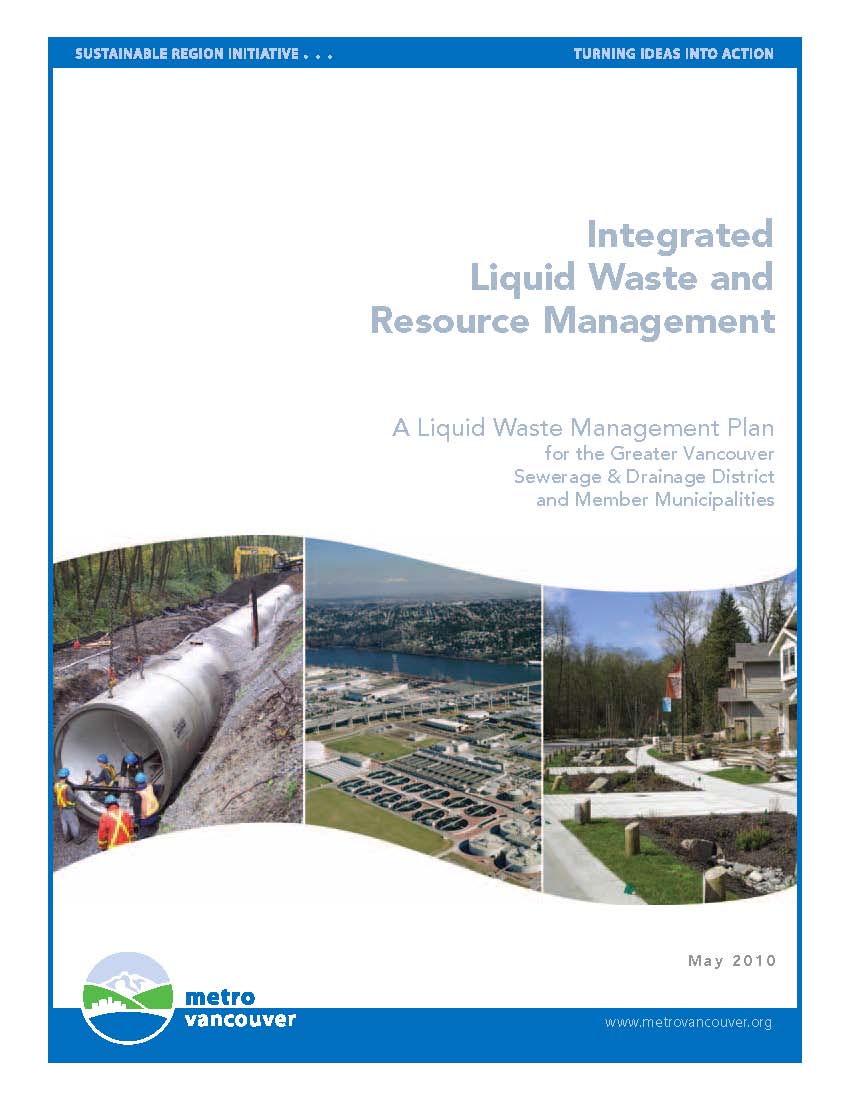Regulatory Context for Integrated Watershed-Based Planning in the Metro Vancouver Region
Visionary Integrated Plan designed to achieve ‘Sustainable Region Vision’
In 2001, Metro Vancouver and its member municipalities recognized the benefits of a watershed-based approach to integrating drainage, ecology and land use planning.
Watersheds were acknowledged as a fundamental and natural management level for the protection and use of water. Rainwater was recognized as a resource, as was the need to protect small fish-bearing streams.
Move Beyond Regulatory Compliance
The region made a commitment to the Province to have watershed-based plans in place by 2014. This commitment is a requirement in the region’s Integrated Liquid Waste & Resource Management Plan, approved by the Hon. Terry Lake, Minister of Environment, in May 2011.
 Two years in the making, the Integrated Liquid Waste & Resource Management Plan establishes the framework for moving beyond regulatory compliance to transitioning Metro Vancouver to an approach that achieves the Sustainable Region Vision.
Two years in the making, the Integrated Liquid Waste & Resource Management Plan establishes the framework for moving beyond regulatory compliance to transitioning Metro Vancouver to an approach that achieves the Sustainable Region Vision.
The Minister strengthened the region’s plan by linking land use, watershed health and regulatory expectations. He imposed conditions that focussed attention on how the degree, type and location of land development can affect watershed health.
Assess Effectiveness of Watershed Plans
“Member municipalities will, with Metro Vancouver planning and coordination, and to the satisfaction of the Regional Manager, develop a coordinated program to monitor stormwater and assess and report the implementation and effectiveness of Integrated Storm Water Management Plans (ISMP),” wrote Minister Lake under Condition #7.
“The program will use a weight-of-evidence performance measurement approach and will report out in the Biennial Report. The Regional Manager may extend the deadline for completion of ISMP by municipalities from 2014 to 2016 if satisfied that the assessment program could result in improvement of ISMP and protect stream health.”
Integrate with Land Use Planning
Under Condition #9, the Minister further stated that: “The ILWRMP has a goal of protecting public health and the environment. In keeping with this goal and to ensure alignment with other national, provincial and regional initiatives, Metro Vancouver and member municipalities are encouraged to:
- have land use planning consider the direction provided by the ISMPs;
- consider how the degree, type and location of land development within a drainage can affect the long-term health of the watershed;
- consider how to protect the stream, including the riparian areas that exert an influence on the streams, from long-term cumulative impacts; and
- use scenarios and forecasting to systematically consider environmental consequences/benefits of different land use approaches prior to build-out (for example. Alternative Future type approaches).”
The Minister’s letter also pointed out that “coordination with municipal planners through forums such as Metro Vancouver’s Technical Advisory Committee will be important to successful integration.”
To Learn More:
To download a copy of the Minister’s letter (dated May 30, 2011) and the staff report to the Metro Vancouver Waste Management Committee, click on Minister’s Approval of Integrated Liquid Waste and Resource Management Plan. For additional information, click on:
- Province approves Metro Vancouver’s visionary plan for Integrated Liquid Waste and Resource Management
- Sustainable Service Delivery: Province Strengthens Metro Vancouver’s Plan for Managing Rainwater Resources
To download a copy of the Recommended Policy Framework developed by the Metro Vancouver Reference Panel as a companion to the regulatory document, and embraced by the Metro Vancouver Board, click on Final Report on A Liquid Resource Management Plan for Metro Vancouver



